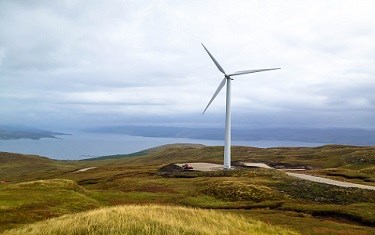 The UK has committed to reaching net zero by 2050. While it is clear that planning has an important part to play, there continues to be a misalignment between planning regulations and climate laws.
The UK has committed to reaching net zero by 2050. While it is clear that planning has an important part to play, there continues to be a misalignment between planning regulations and climate laws.
Given the UK’s long reliance on fossil fuels, there needs to be a reconsideration of the spatial layout of the grid since the post-war building boom. This will require careful consideration of land use for generation, transmission and storage, which will need to be coordinated with large energy-intensive developments such as new housing sites.
The Royal Town Planning Institute (RTPI) has consistently called for a more spatial approach to infrastructure planning. By stating where new infrastructure would go – instead of only saying what is needed – communities will have a chance to proactively plan around and with it.
To understand how this would work, the RTPI has commissioned energy experts Regen to investigate the links between energy planning and local spatial planning, and to understand how they could be better integrated.
This work will explore how Local Area Energy Plans (LAEPs) and Local Heat and Energy Efficiency Strategies (LHEES) have been developed across the UK and to what extent they have been integrated with local spatial planning. It will outline the challenges and opportunities in the connections between energy and land-use planning and set out the siting considerations impacting energy infrastructure. It will also look to establish if there are lessons to be learned from different approaches across the devolved nations.
The research aims to provide advice on how LAEPs and LHEES could take local spatial considerations into account. It will do this through case study insights and policy recommendations.
Dr Rebecca Windemer, planning and communities lead at Regen, said: “We are excited to be working with the RTPI to explore this important topic. The project should help to ensure that Local Area Energy Plans and spatial planning are aligned and supporting the common goal of reaching net zero. If these take place in isolation significant opportunities for low-carbon energy will be missed, so this research is really important both for the energy industry and planners.”
If you are interested in contributing to the research, please contact Rebecca Windemer at Regen at [email protected]


